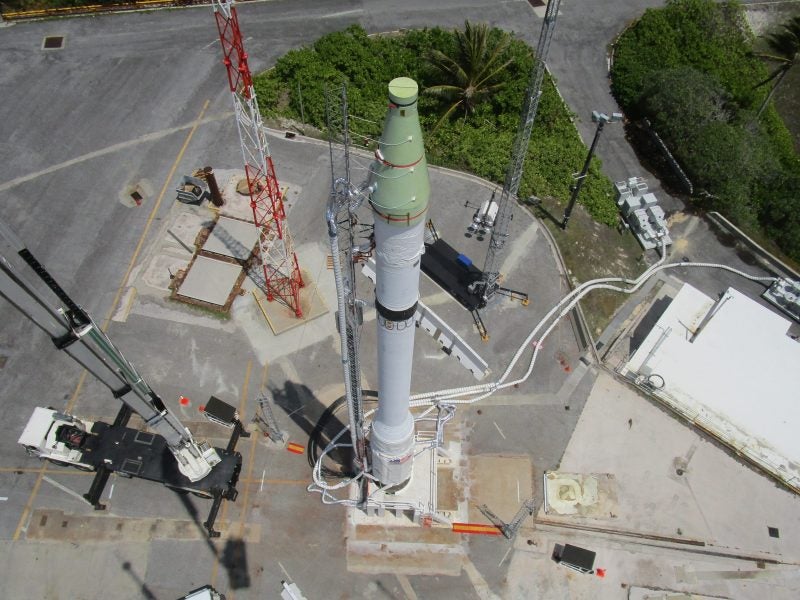
The US Department of Defence (DoD) has terminated Boeing’s $1.2bn Redesigned Kill Vehicle (RKV) programme and will replace it with a new push for missile interceptors.
The DoD dropped the programme after repeated delays led to a stop-work order being placed in May 2019. At the time the Pentagon said it had “determined the technical design problems were so significant as to be either insurmountable or cost-prohibitive to correct.”
The weapon would have been used to intercept incoming ballistic missiles as part of the US Missile Defence Agency’s suite of anti-air countermeasures.
In a statement Boeing told Air Force Technology: “Boeing accepts the Missile Defense Agency’s decision to terminate work on the Redesigned Kill Vehicle under the current contract and supports the competition for a new, next-generation interceptor that will add value to the Ground-based Midcourse Defense system.
“We will continue to support the requirements that our customer sets forth for effective missile defense, just as we have for more than two decades.”
DoD under-secretary of defence for research and engineering, Michael Griffin, said: “After exercising due diligence, we decided the path we’re going down wouldn’t be fruitful, so we’re not going down that path any more.
“Ending the programme was the responsible thing to do.”
The weapons have been successfully tested but are yet to have been used in a combat setting. The system works by launching the kill vehicle to above the Earth’s atmosphere where it steers to its target, destroying it with kinetic force.
A spokesperson for the US Missile Defence Agency said it could not reveal problems with the system to its ‘classified nature’.
The RKV was due to replace the US existing Exoatmospheric Kill Vehicle (EKV) which is fitted on 44 Ground-Based Interceptors and has been in use since the 1990s. The system was due to be replaced to enable missile defence to keep pace with increasingly faster ballistic missiles.
The RKV was to be fitted on 20 new ground-based interceptors ordered by the DoD.
The programme was led by Boeing and included work from Raytheon which manufactured the RKVs. The Redesigned Kill Vehicle was part of a wider contract given to Boeing to expand the US missile defence capabilities. The $6.6bn contract covers the 20 new interceptors, missile silos and other support requirements.
The Pentagon has yet to reveal a timeline for the issue of a new contract, however, due to their history in missile defence Raytheon and Boeing are expected to have a role in the future programme.



